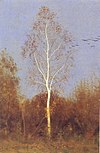External links
- Review of Whole Terrain Volume 3: Environmental Ethics at Work
- SEJ: Environmental Journalism Programs and Courses
Whole Terrain on the Web
- Whole Terrain main site
- Whole Terrain "Where is Nature?" Virtual Art Gallery
Whole Terrain Articles on the Web
- Dance Fever by Michael P. Branch, from Utne, first published in Whole Terrain Volume 9 as More Than Just Watching
- Energetic Americans, from Utne Magazine, published in Whole Terrain Volume 10 as Are We Dreaming?
- Guerrilla Gatherers by Laird Christiansen, from Utne Magazine, first published in Whole Terrain Volume 11 as The Give and Take of Wildcrafting
- Hudson River Immersion by Dr Laird Evans Christiansen, first published in Whole Terrain Volume 13
- Marshfield: A Suburban Fairy Tale by Peggy Duffy, first published in Whole Terrain Volume 10
- Mistaken Impressions of the Natural World by Stephanie Kaza, published in Whole Terrain Volume 4
- Practicing with Greed by Stephanie Kaza, published in Whole Terrain Volume 11
